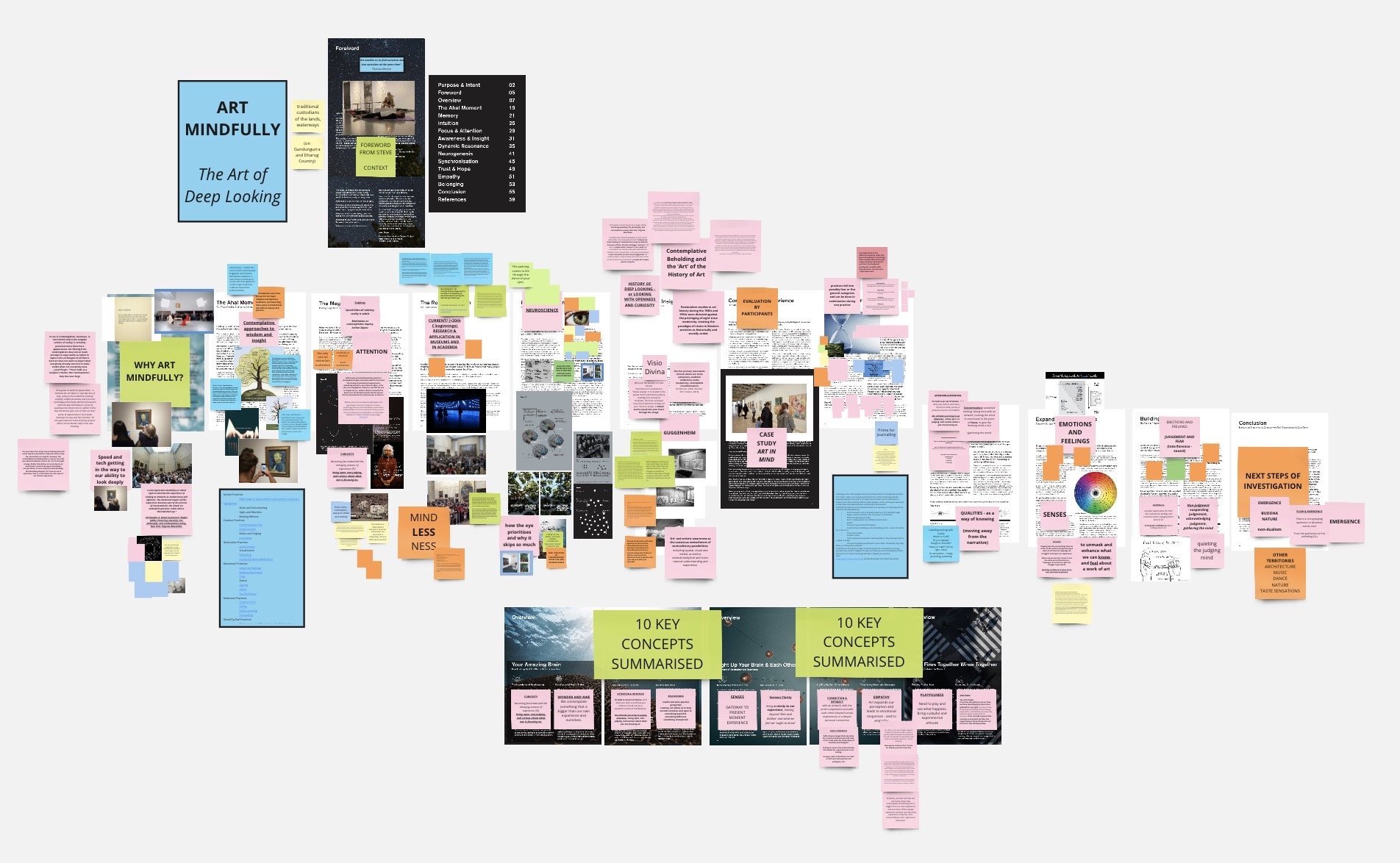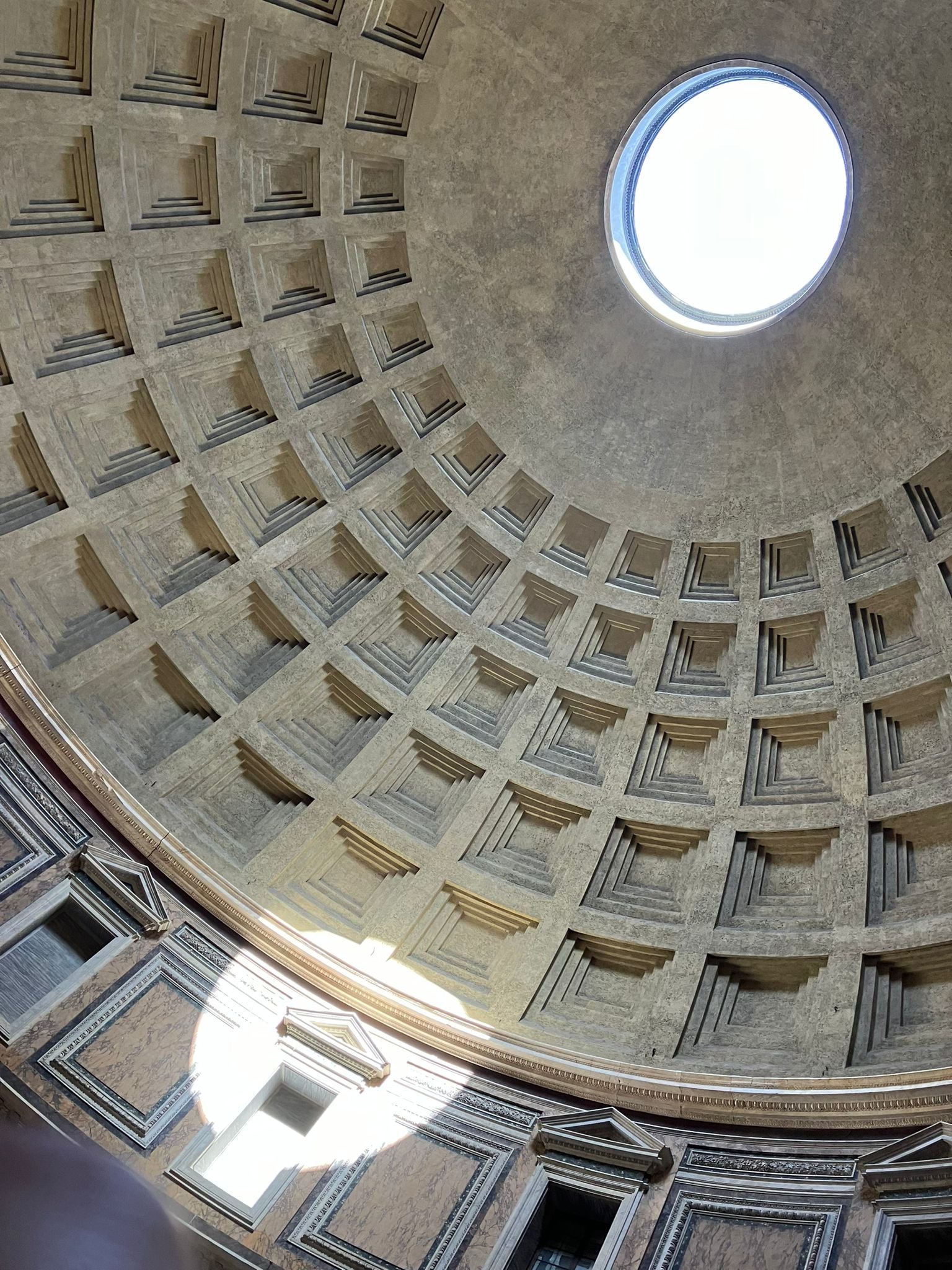Philosophers have discussed for centuries about how we understand works of art and how we derive meaning from these works. In fact, through the ages much more consideration has gone into how we “think” about art, rather than how we experience art. We believe that in parallel to the criticism, theory and art historical inquiry that there is an opportunity to explore our individual responses to artworks, including the feelings and emotions that arise from a more contemplative exploration of art.
The upcoming Art of Deep Looking “white paper” is informed by first-hand observation, experimentation and participant commentary and surveying, that has taken place over a decade of delivering art and mindfulness sessions at major museums and galleries around the world. Our investigations include extensive research we’ve undertaken in the areas of philosophy, neuroscience, visual thinking strategies, slow looking, the historical practices of Beholding and Visio Divina, along with aesthetics research.
This research has informed a core part of the thinking and insights that have been critical to the development and delivery of various Art of Deep Looking activities and sessions, as well as the building of the ILLUME, art mindfully platform.
We have been examining the work of key research centres including Center for Empathy and the Visual Arts through the Minneapolis Institute of Art (Mia), as well as the art and mindfulness programs delivered by world-renowned museums and galleries such as the Art Gallery of Ontario, Toronto Canada; J Paul Getty Museum in LA (findings from their multi-session mindfulness-based experiences with art); and the Rubin Museum of Art in New York City. As well, the findings from the Getty Centre’s Mindfulness in the Museum convening of educators in August 2022. Further study and research uncovered through Oxford University’s Mindfulness Foundation summer school programs in 2018 & 2019 informed the basis of the white paper research as well.
From these we have distilled insights and hypotheses that we feel are ready for debate and discussion.
White Paper 2024


